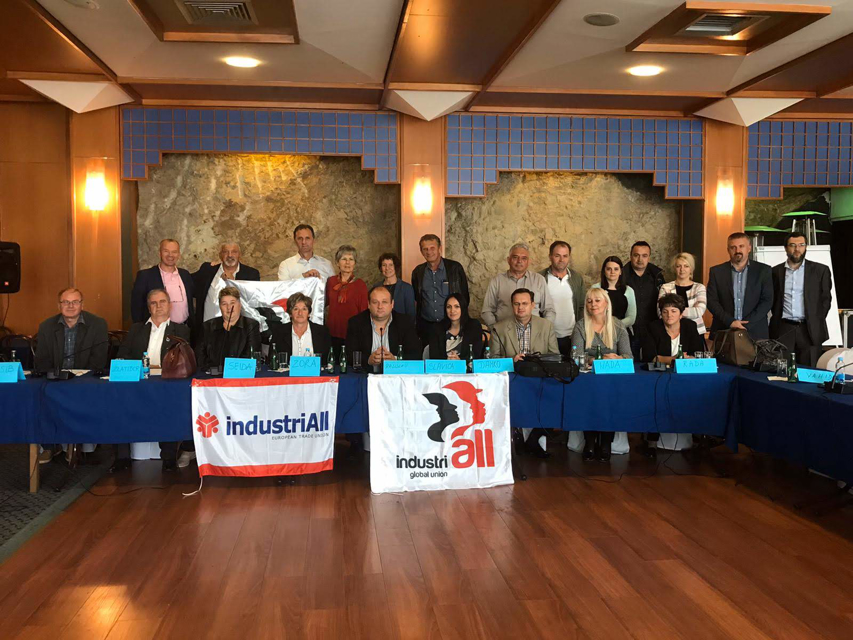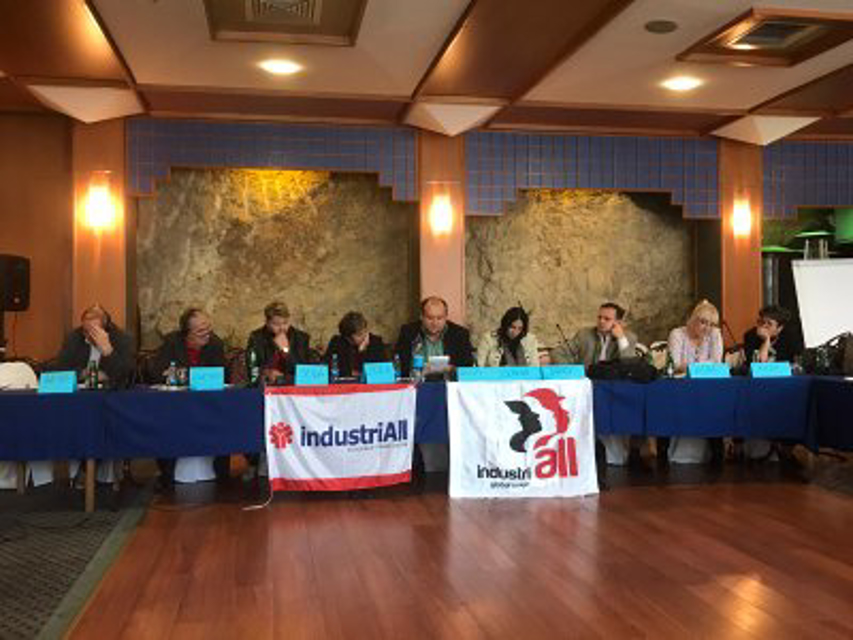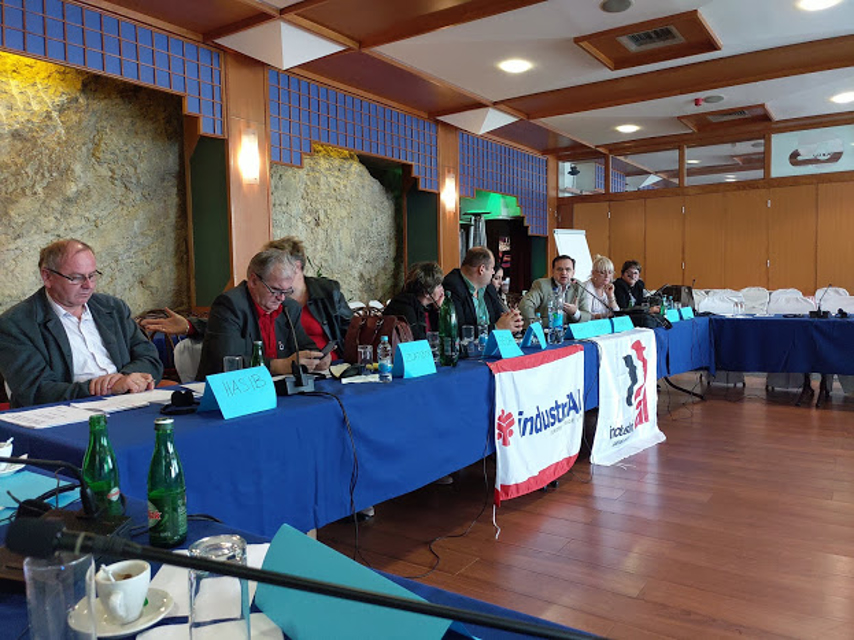IndustriAll Europe and IndustriALL Global Union organised the seminar to discuss the most pressing concerns of their affiliates in Bosnia-Herzegovina and to show support. The seminar focussed on the textile sector that has been growing in recent years but is characterized by persistently low wages, with wages among the lowest in South-East Europe.
Building trade union power and organising more workers in trade unions were highlighted as crucial tasks for unions in Bosnia-Herzegovina to ensure decent wages, good working conditions and establish stable collective bargaining systems.
Seminar participants examined a detailed mapping of factories and fashion brands present in the country. On this basis, organising plans will be developed to build trade union power in the textile, clothing, footwear and leather sector. The targeted brands include GFA signatory Tchibo, ACT members C&A, Next, as well as Adidas, Benetton, Burberry and Nike. IndustriAll Europe and IndustriALL Global Union have pledged solidarity and cooperation to their affiliates in that endeavour.
Luc Triangle, industriAll Europe’s General Secretary said:
“Bosnia-Herzegovina is in the heart of Europe and IndustriAll Europe supports the affiliates in Bosnia-Herzegovina in their calls for a clear timeline for their country´s accession path to the European Union. This will give clarity to workers and their families about their future in the country. Bosnia-Herzegovina should not be the poorhouse of Europe where companies in the manufacturing industries benefit from the closeness to the European market but are unwilling to ensure European labour standards. That´s why industriAll Europe supports them in building trade union power in the textile, clothing, footwear and leather sector and beyond.”
Kemal Özkan, IndustriALL Global Union’s assistant general secretary said:
“Our affiliates in Bosnia-Herzegovina are fighting for the respect of fundamental workers’ rights in a complex and hostile constitutional and institutional set up. They will continue to receive our solidarity and full cooperation in building union power. Together with our sister organisation industriAll Europe, we are shoulder-to-shoulder with them in their struggle to achieve decent wages and working conditions for all.”
Textile sector in Bosnia-Herzegovina –industrial growth led by low wages
Manufacturing industries in Bosnia-Herzegovina employ more than 170,000 workers, of whom 22 percent or 38,000 work in the textile sector cluster. The number of textile workers has been growing in recent years, as fashion brands have increased their sourcing from the country.
Bosnia-Herzegovina is located conveniently close to the major European markets. But another important factor for the brands’ interest is low wages.
The legal minimum wage is just over 200 euros per month, and average salaries for garment and footwear workers are not much higher in the two entities of country. According to the latest official figures, textile workers in Republika Srpska earn 285 euros per month, while in the Federation the average is 247 euros. These are the lowest figures in South-East Europe, alongside Albania.
More than 80 percent of the workers are women.
A hostile environment for trade unions
The two textile workers’ unions have in total 5,000 paying members and several non-paying members. They estimate a unionisation rate of around 30 percent, which is higher than in other countries of the region.
Yet, the unions realise the need to organise more workers in order to build trade union power. But they face a hostile environment.
“70 percent of companies are without a union. We have reasonable relations with older and bigger companies, but many small business owners see unions as an enemy and resist us coming to organise their workers”, says Danko Ružičić, president of the Trade Union of Textile, Leather and Shoe Industry Workers of Republika Srpska.
Another challenge came in 2015, when the government pushed through a new Labour Code as part of its Reform Agenda without consultation of the social partners. Among other things, it declared existing collective agreements null and void, thus forcing a renegotiation. At confederal level, a General Collective Agreement was concluded soon, but branch-level negotiations proved hard to achieve.
Only in September 2018 did the textile union of the Federation reach a sectoral collective agreement covering all 26,000 workers in the entity through extension. In Republika Srpska, 12,000 workers are still without the protection of a branch accord.
“We reached the agreement after tough negotiations. But another problem is that many workers who get same benefits without being our members, do not see why they should pay union dues from their meagre salaries”, says Zlatibor Kojčić, president of the Trade Union of Textile, Leather, Footwear and Rubber of the Federation of Bosnia and Herzegovina.
Investment in education and an industrial strategy are needed to give workers a future
The employers and the government recognise the challenge of providing good quality jobs for young people, many of whom have already left the country for Western Europe.
“Our objective is to raise wages, but the brands have to raise their prices to suppliers to enable higher pay. Nobody wants companies to close. And we need to invest in education, skills, modernisation and new technology”, says Amir Medic, general secretary of the Textile, Footwear and Leather Association.
The government has promised to support this development. Senad Zekic from the Federal Ministry of Energy, Mining and Industry referred to the revised textile sector strategy 2019-2023. In order to make growth opportunities materialise, the government is planning increased investment in education and financial support to value added production.
Contact Ildiko Kren for more information and further comment.


